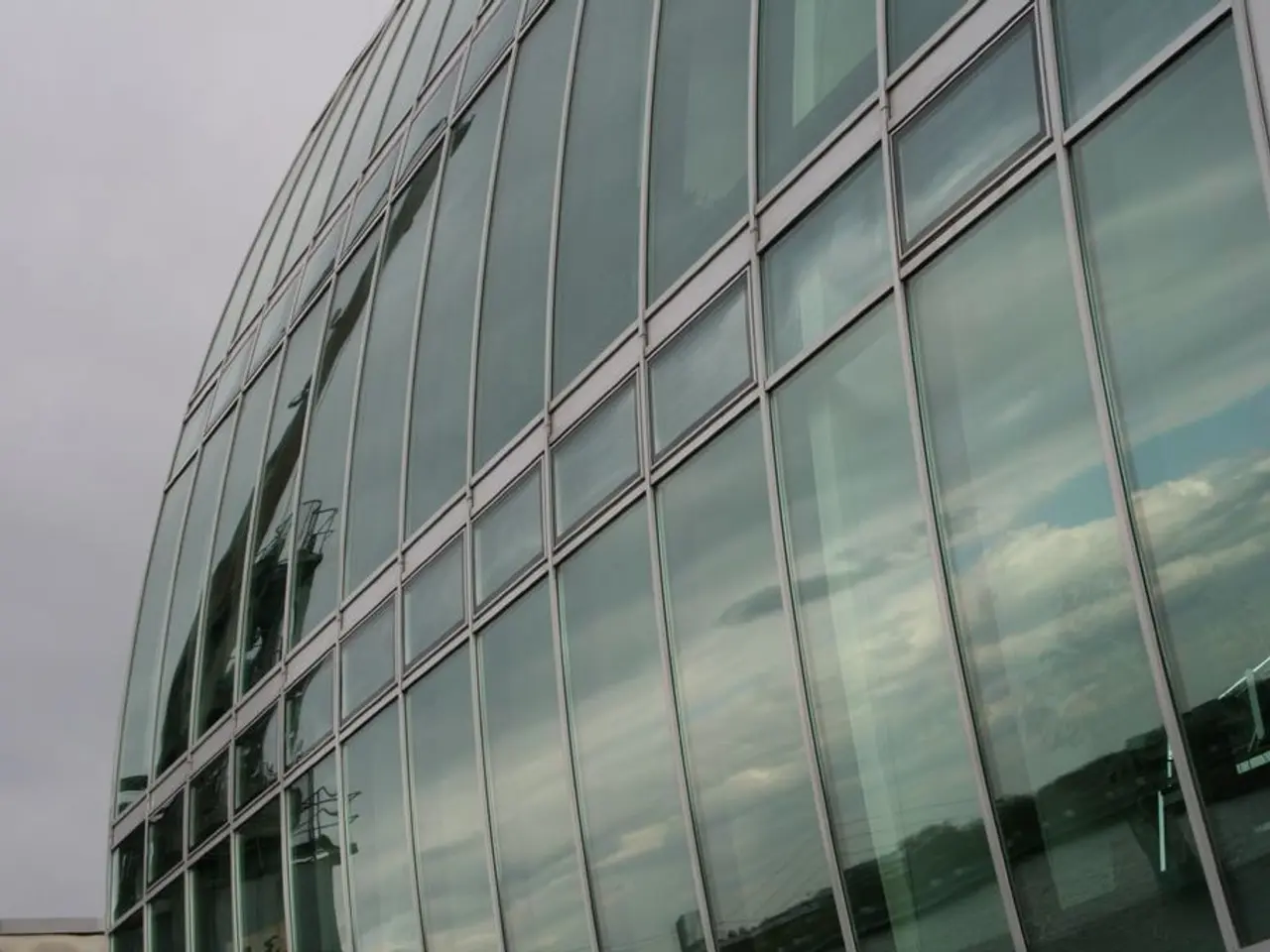German Central Bank (Bundesbank) warns about weakening economic momentum, citing US tariffs as a heavy burden. - German Central Bank Warns: Economic Strain Caused by American Tariffs
In the heart of Europe, Germany's economic outlook for 2025, as per the Deutsche Bundesbank's mid-year assessment, remains cautiously moderate. This moderate outlook is primarily due to external tariffs, particularly those imposed by the United States, and structural issues that have been lingering for some time.
The first quarter of 2025 saw a growth spurt, primarily due to companies bringing forward deliveries in anticipation of US tariffs. However, the forward effects of these deliveries have now run out, according to the Bundesbank. This has led to a weak and largely stagnant economic growth in the short term, as evidenced by Germany's GDP essentially stagnating in Q2 2025.
The US tariffs, initially imposed by former President Donald Trump, have weighed on Germany's economic growth. There was a surge in industrial production and exports in anticipation of tariffs, but this normalized in subsequent months. Some tariffs were suspended in Q2, but uncertainty over future tariff levels remains.
Moreover, Germany's export competitiveness has been eroding, with more than three-quarters of export losses between 2021 and 2023 attributable to higher energy prices, structural problems, labor shortages, and rising labor costs. Energy-intensive industries like chemicals and mechanical engineering have been particularly hard hit.
Structural challenges and demographic trends are also contributing to the subdued growth outlook. These include a shortage of skilled workers, bureaucratic delays, and increased unit labor costs, which weigh on investment and export performance.
Despite these challenges, the Bundesbank projects a slight GDP growth of around 0.7% in 2026 and about 1.2% in 2027, suggesting a tentative end to three consecutive years of near-zero growth. However, the medium term remains fragile.
Fiscal policy, including government budget measures, may provide some delayed stimulus, although government spending is shifting more towards current expenses rather than new investment, limiting growth potential.
The construction industry in Germany is facing a crisis, but the labor market remains stable. The Ifo business climate has improved due to the prospect of multi-billion euro investments by the federal government, but an economic boost will come later.
In light of these challenges, Bundesbank President Joachim Nagel has warned of additional headwinds for the German export industry due to US trade policy. He has also stated that a swift agreement with the USA should be the goal of the EU, but this agreement should not be made "at any price".
Industrial companies in Germany are underutilized, and trade uncertainty is harming economic development. Consumers in Germany are holding back on spending, and this stagnation threatens the German economy with a third consecutive year without growth by 2025, a first in the history of the Federal Republic.
In its June forecast, the Bundesbank predicted stagnation for the German economy in 2021. Despite these challenges, Nagel remains hopeful for a recovery in the near years, but with a clear emphasis on addressing the underlying issues to ensure sustainable growth.
- The US trade policy, with its tariffs imposed on various goods, has been a significant factor in Germany's cautiously moderate economic outlook for 2025, as highlighted by the Deutsche Bundesbank, and has been a source of uncertainty for many businesses and industries.
- To bolster the economy, fiscal policy could play a crucial role by implementing government budget measures that stimulate economic growth, with a focus on investment rather than current expenses, as suggested by the Bundesbank. This could help alleviate the threats of stagnation and potentially lead to a recovery in the near years, as expressed by Bundesbank President Joachim Nagel.




